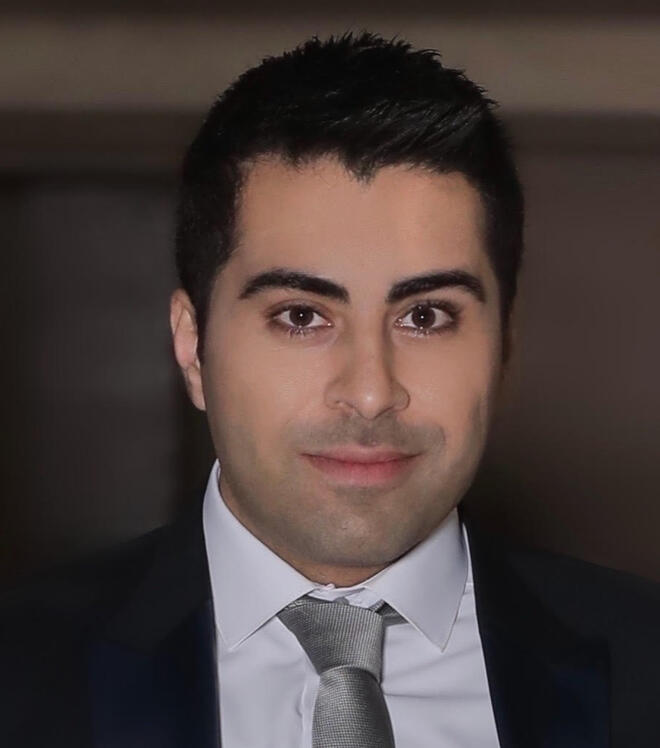Ali Nouri
Researcher (PhD Candidate) @ Chalmers University of Technology
Arguing Safety of Autonomous Vehicle @ Volvo Cars
My research goal is to explore methods and technical solutions for coping better with the safety of autonomously driven vehicles with "rapid and continuous" software development and deployment. The research is funded by Sweden's Innovation Agency (Vinnova) and is a collaboration between Volvo Cars, Zenseact, and Chalmers.
Licentiate Abstract
Background: The safety of Autonomous Driving (AD) remains a barrier to its widespread adoption, as evidenced by recent incidents. Factors such as the complex environment, evolving technologies, and shifting regulatory and customer requirements necessitate continuous monitoring and improvement of AD software (Fig. 1). This is a process that may favor software and system engineering supported by DevOps. The iterative DevOps process is crucial, serving two purposes: satisfying customer demands through continuous improvement of the function and providing a framework for timely responses to unknown bugs or incidents. However, any update to the software must follow rigorous safety processes prescribed by standards, regulations, or the state of the art in the industry. These necessary activities, although vital for safety assurance, inherently lead to a compromise in rapidity.Research Goal: In this PhD, we initially identified the challenges in the rapidity of safe AD in DevOps environment and then explored existing solutions. Subsequently, we proposed two approaches for the primary activities in the development of AD, which are requirement engineering and safety analysis.
Fig. 1: DevOps loop in safe AD development (Publication A)
Methods: To address each research objective, diverse research methodologies were utilized. Interview study and systematic literature review are conducted to identify the challenges and research gaps. Then for the proposed approaches design science, interview study, and case study are employed.Results: Initially, the challenges and research gaps related to each essential activity for the safety of autonomous driving (AD) are identified (Publications A and B). The proposed solutions in the literature are identified and mapped to the challenges (Publication B). Then, two approaches are proposed for the rapidity of safety analysis, which is the initial step in development. We adapted STPA for distributed development within automotive system engineering (Fig. 2), which is a solution to the first challenge (Publication C). As an alternative approach, a Large Language Model (LLM)-based hazard analysis risk assessment prototype (Fig. 3) is developed to enable automation (Publications D and E).Conclusions: There are multiple challenges in achieving rapid SafetyOps in AD development. The design phase, as a stepping stone of development, was underexplored with respect to solutions for rapid updates in its artifacts. In one approach, we proposed adapting STPA for multiparty distributed development as a strategic solution to increase the speed of SafetyOps. Subsequently, we explored the possibility of using LLMs to perform design phase activities with minimal engineers' involvement. These two proposed approaches contribute to an increase in speed in the design phase, one by enabling distributed development, and the other by automation.
Fig. 2: Distributed development (Publication C)
Fig. 3. LLM-based HARA, utilizing a pipeline of subtasks, each managed through a specific prompt. The item definition is imported (top-left), and the HARA results are exported (bottom-right). In the second row of the HARA table, the relationship of each column to the prompts is summarized. (Publication D)
Recent Publications
- An Industrial Experience Report about Challenges from Continuous Monitoring, Improvement, and Deployment for Autonomous Driving Features
- On STPA for Distributed Development of Safe Autonomous Driving: An Interview Study
- Welcome Your New AI Teammate: On Safety Analysis by Leashing Large Language Models
- Engineering Safety Requirements for Autonomous Driving with Large Language Models
Upcoming Presentations
- CAIN 2024 - Welcome Your New AI Teammate: On Safety Analysis by Leashing Large Language Models
- Autonomous Vehicle Technology Expo 2024 - Leashing AI: On Challenges and Solutions in Autonomous Vehicle Safety Assurance
Selected Previous Presentations
- MIT 2022 STAMP Workshop - A feasibility study on the application of STPA method in AD
- Automotive iQ 2023, Berlin - Assuring the Safety of Autonomous Driving from Design to V&V
- SCSSS2021 - Safety Argumentation of Autonomous Drive Function
Experiences
2022 - Current: Autonomous Vehicle Researcher (PhD Candidate) @ Chalmers University of Technology & Volvo Cars
2018 - Current: Autonomous Vehicle Senior System Safety Engineer @ Volvo Cars
2015 - 2018: Safety Manager @ exida
Education
2022 - current: PhD candidate @ Chalmers University of Technology
2014 - 2015: Master Thesis @ ETH Zurich - Dynamic Capability Analysis and Arm Controller Development for an In-Situ Fabricator
2012 - 2015: Master of Science in Mechatronics, Robotics, and Automation Engineering @ Politecnico di Torino



